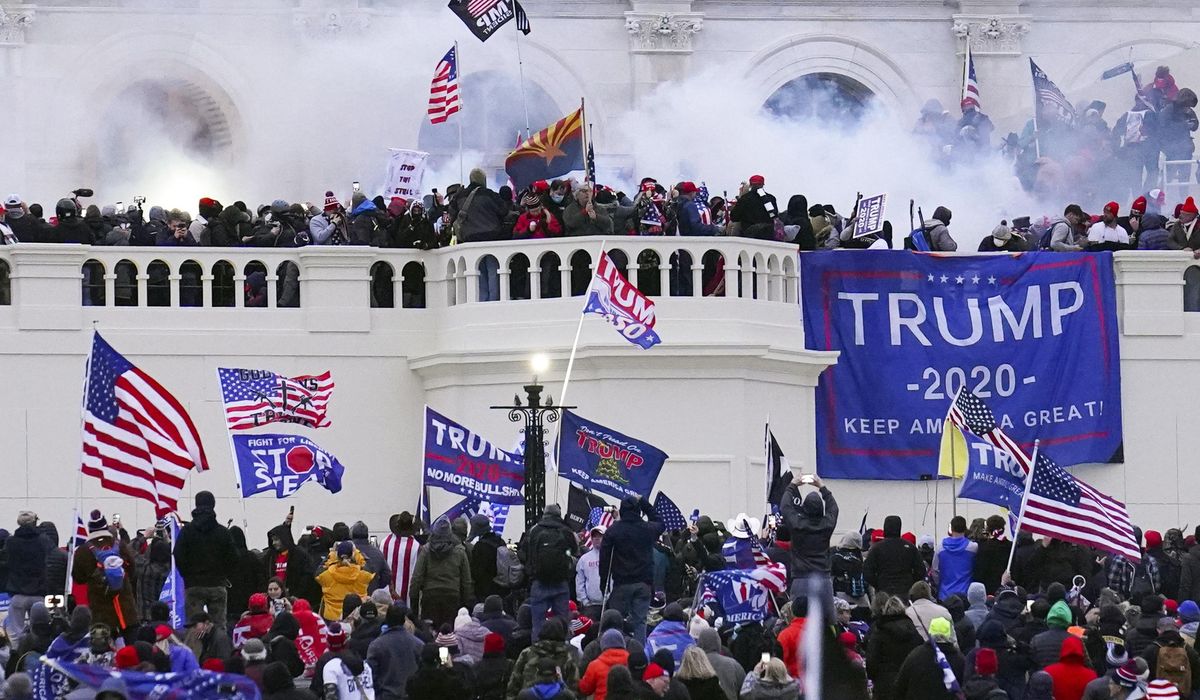


President Trump’s new U.S. attorney in Washington, D.C., announced an investigation Monday into how the office used a now-discredited law to go after Jan. 6 defendants.
Edward Martin, appointed the interim U.S. attorney, said it was “a great failure of our office” that prosecutors during the Biden administration used a law governing obstruction of an official investigation or government proceeding to go after people who disrupted counting of the Electoral College votes in 2021.
“We need to get to the bottom of it,” he said in a memo to employees.
At issue is a section of the law written after the Enron scandal, when Congress realized there was no law against shredding documents to hide evidence from investigators. Federal prosecutors, years later, deployed that law, 18 U.S. Code 1512, against more than 300 Jan. 6 defendants.
But the Supreme Court, in a 6-3 ruling, rejected that claim. Justice Ketanji Brown Jackson, a Biden appointee, joined five of her GOP-appointed colleagues in ruling in favor of a Jan. 6 defendant who challenged the prosecution.
Chief Justice John G. Roberts Jr. said the government misread the scope of the law.
“If Congress had wanted to authorize such penalties for any conduct that delays or influences a proceeding in any way, it would have said so,” the chief justice wrote.
He said to read the law otherwise would mean all sorts of common activities by lobbyists and activists who try to influence the government would be implicated.
President Trump, in one of his first acts, issued pardons to about 1,500 Jan. 6 defendants last week.
Mr. Martin named two people in his office to lead an investigation into why prosecutors decided to stretch the law. He ordered employees to find and share all files, emails and other documents related to the section 1512 charges.
He said he expects a preliminary report by Friday.
“Be comprehensive and assertive in this, please,” he said. “This 1512 Project is important work.”
A senior administration official said the prosecutions using the obstruction law cost taxpayers “millions — maybe even tens of millions” of dollars.
“The DOJ should never be in the business of filing hundreds of charges that end up being dismissed,” the official said. “Clearly, there was failure. This was inept that they did that, and we are going to find out why they did that.”
Section 1512(c), the relevant portion of the law, reads:
“Whoever corruptly — (1) alters, destroys, mutilates, or conceals a record, document, or other object, or attempts to do so, with the intent to impair the object’s integrity or availability for use in an official proceeding; or (2) otherwise obstructs, influences, or impedes any official proceeding, or attempts to do so, shall be fined under this title or imprisoned not more than 20 years, or both.”
• Stephen Dinan can be reached at sdinan@washingtontimes.com.
• Alex Swoyer can be reached at aswoyer@washingtontimes.com.
